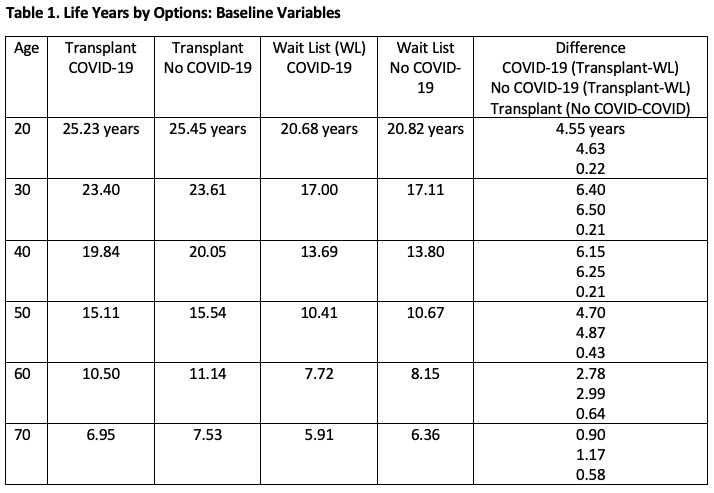Panic in the Pandemic: A Medical Decision Analysis Examining When Kidney Transplant Programs Should Close
1Nova Scotia Health Authority Division of Nephrology, Departm, Halifax, NS, Canada, 2Dalhousie University, Halifax, NS, Canada
Meeting: 2021 American Transplant Congress
Abstract number: 704
Keywords: Infection, Kidney, Kidney transplantation, Public policy
Topic: Clinical Science » Public Policy » Non-Organ Specific: Public Policy & Allocation
Session Information
Session Name: Non-Organ Specific: Public Policy & Allocation
Session Type: Poster Abstract
Session Date & Time: None. Available on demand.
Location: Virtual
*Purpose: Pandemics greatly interfere with overall health care delivery as resources are diverted to combat the crisis. Kidney transplantation programs were closed temporarily during the COVID-19 pandemic. Given the critical shortage of organs and the overall importance of transplantation in improving length and quality of life for those with kidney disease, this analysis examines the impact of discarding deceased donor organs or in the case of live donation, deferral during a pandemic.
*Methods: The net benefit (or harm) of discarding deceased donor organs or deferring live donor kidney transplant was measured in projected life years from a societal and individual perspective using a Markov model. A wide range of infection rates, pandemic durations, and case fatality rates associated with infection in waitlisted and transplant recipients was examined.
*Results: Overall, patient life expectancy fell for both waitlisted and transplant recipients as the pandemic conditions became more unfavourable. However, the overall net benefit of a transplant during the pandemic was preserved. Even assuming plausible but higher relative case fatality rates in transplant recipients compared to waitlisted patients and risks of nosocomial and donor transmission, there remained a benefit with proceeding with deceased donor kidney transplant; net benefit >4 years up until age 60, Table 1. The net benefit of proceeding with live donor transplant during a pandemic was >7 years for all ages. Deferring transplantation, even accounting for additional pandemic-associated risk, negatively impacted most recipients.
*Conclusions: As long as hospitals have adequate resources to deal with the pandemic and can limit nosocomial infection, kidney transplantation should not be curtailed.
To cite this abstract in AMA style:
Vinson AJ, Kiberd B, Tennankore K. Panic in the Pandemic: A Medical Decision Analysis Examining When Kidney Transplant Programs Should Close [abstract]. Am J Transplant. 2021; 21 (suppl 3). https://atcmeetingabstracts.com/abstract/panic-in-the-pandemic-a-medical-decision-analysis-examining-when-kidney-transplant-programs-should-close/. Accessed February 17, 2026.« Back to 2021 American Transplant Congress

